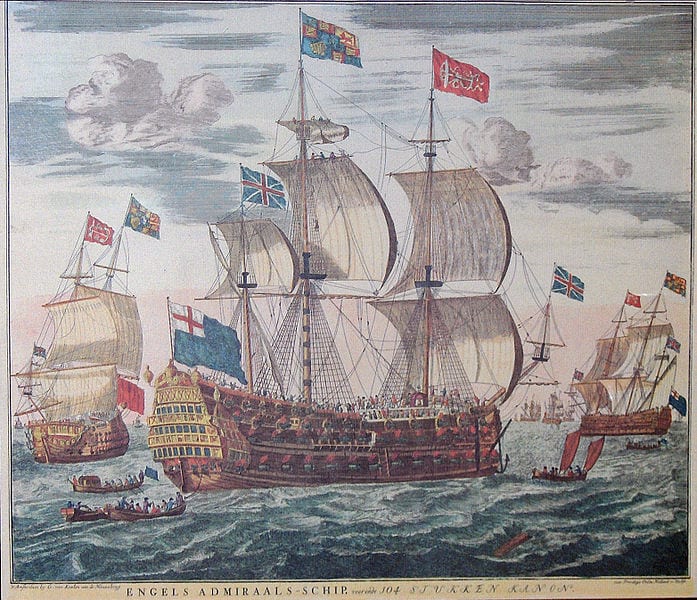Developing strong negotiation skills enhances the likelihood of successful dispute resolution and fosters positive relationships within the maritime community.
Maritime disputes are multifaceted, involving cross-border issues, multiple jurisdictions, and complex legal frameworks. Without expert legal guidance, parties can find themselves entangled in prolonged and costly litigation or arbitration, potentially harming their business and reputation.
This article offers a comprehensive guide to navigating maritime disputes, outlining both litigation and arbitration strategies that can be employed to resolve conflicts efficiently. By understanding the legal landscape, the different types of disputes, and the strategies available, you can protect your interests and ensure smoother sailing in turbulent waters.
Let’s delve into the key aspects of maritime disputes, explore the legal frameworks involved, and examine the most effective strategies for resolution.
Key Takeaways
- Understand the Types of Maritime Disputes: Learn about the various forms of maritime disputes, including pollution claims, charter party disputes, and vessel casualties, and why it’s essential to recognize their complexities.
- Effective Litigation Strategies: Discover the role of litigation in resolving maritime disputes, including its advantages and challenges, to better prepare for potential legal battles.
- Alternative Dispute Resolution: Explore how arbitration and mediation offer efficient and flexible alternatives to traditional litigation, helping you resolve disputes while preserving business relationships.
Understanding Maritime Disputes
Maritime disputes encompass a range of conflicts that arise within the maritime sector. These disputes can involve various aspects of maritime law, including issues related to the law of the sea, charter party disputes, or casualties.
The complexities of maritime disputes often necessitate expert legal guidance from experienced maritime attorneys.
Definition of maritime disputes
Maritime disputes refer to disagreements or conflicts that involve maritime-related issues, such as navigation, trade, or maritime operations. These disputes can arise between maritime clients, companies in the maritime industry, or entities in international trade.
Resolving maritime disputes requires a nuanced understanding of admiralty and maritime law, as well as familiarity with the intricacies of the maritime sector.
Types of maritime disputes
Maritime disputes can take various forms, including pollution claims, charter party disputes, or disputes related to vessel casualties. Additionally, issues like non-maritime disputes that affect maritime operations, such as contractual disagreements, can also fall within the purview of maritime disputes.
Understanding the different types of maritime disputes is crucial for effectively navigating the complexities of the maritime legal landscape.
Challenges in international maritime disputes
International maritime disputes present unique challenges due to the cross-border nature of maritime activities. Disputes involving multiple jurisdictions, laws, and parties can complicate the resolution process.
Alternative dispute resolution methods, such as arbitration or mediation, are often employed to address international maritime disputes efficiently and effectively. Navigating the intricacies of international maritime disputes requires tailored litigation and arbitration strategies to ensure swift and equitable resolution.
Legal Framework for Resolving Disputes
When it comes to resolving legal conflicts in the maritime domain, understanding the legal framework becomes imperative. Maritime law governs various aspects of maritime activities, providing a set of rules and regulations that facilitate dispute resolution in this specialized field.
Overview of maritime law
Maritime law, also known as admiralty law, is a distinct legal framework that regulates activities at sea. This body of law covers a wide range of maritime issues, including navigation, trade, pollution, and maritime accidents.
Understanding maritime law is essential for anyone involved in the maritime industry to navigate legal challenges effectively.
Admiralty and maritime claims
Admiralty and maritime claims refer to legal actions or demands related to maritime activities. These claims can involve disputes over vessel ownership, maritime contracts, or injuries that occur at sea.
Resolving admiralty and maritime claims requires specialized legal expertise and a deep understanding of the nuances of maritime law.
Role of arbitration in maritime disputes
Arbitration plays a significant role in resolving maritime disputes outside of traditional court settings. Parties involved in maritime conflicts often opt for arbitration to benefit from a more streamlined and efficient dispute resolution process.
Arbitration allows for a neutral arbitrator to make binding decisions, offering a more flexible and confidential alternative to traditional litigation in resolving maritime disagreements.
Litigation Strategies
When it comes to resolving maritime disputes, litigation plays a pivotal role in ensuring fair and just outcomes. The importance of litigation in maritime disputes cannot be overstated, as it provides a formal legal process for parties to present their case, gather evidence, and seek judicial decisions.
Litigation in maritime law serves as a mechanism for upholding legal rights, clarifying legal interpretations, and enforcing compliance with maritime regulations and agreements.
Importance of litigation in maritime disputes

In the context of maritime disputes, litigation serves as a crucial tool for resolving conflicts that arise within the maritime industry. By initiating legal proceedings in court, parties can present their arguments, engage in discovery processes to gather relevant information, and ultimately obtain a binding judgment from a judicial authority.
The litigation process in maritime disputes ensures that legal rights are upheld, contractual obligations are enforced, and disputes are resolved in a transparent and impartial manner.
Litigation process in international maritime law
International maritime law governs the litigation process for disputes that cross national borders or involve parties from different jurisdictions. The litigation process in international maritime law involves navigating complex legal systems, understanding international conventions and agreements, and addressing challenges related to jurisdiction and choice of law.
Legal practitioners specializing in international maritime law utilize their expertise to guide clients through the intricacies of cross-border litigation, ensuring compliance with applicable laws and regulations.
Advantages and disadvantages of maritime litigation
Maritime litigation offers various advantages, such as the ability to enforce legal rights, obtain judicial decisions, and set legal precedents that can guide future cases. However, maritime litigation also entails potential drawbacks, including lengthy court proceedings, high costs, and uncertain outcomes.
Parties involved in maritime disputes must weigh the advantages and disadvantages of litigation carefully, considering factors such as the complexity of the case, the likelihood of success, and the availability of alternative dispute resolution methods.
Arbitration and Mediation Techniques
Aside from litigation, arbitration and mediation techniques play significant roles in resolving maritime disputes through out-of-court mechanisms. These alternative dispute resolution methods offer efficient and flexible approaches to dispute resolution, allowing parties to settle their differences with the help of neutral third parties or arbitrators.
Arbitration vs. mediation in resolving maritime disputes
Arbitration and mediation serve as alternatives to traditional litigation in resolving maritime disputes. While arbitration involves a formal process where an arbitrator makes a binding decision based on presented evidence, mediation focuses on facilitating negotiations between parties to reach a mutually acceptable resolution.
Understanding the differences between arbitration and mediation is crucial for selecting the most suitable method for resolving specific maritime disputes.
Benefits of arbitration in international maritime law
Arbitration offers several benefits in the context of international maritime law, including confidentiality, flexibility, and the ability to choose arbitrators with expertise in maritime disputes. Parties engaged in international maritime disputes often favor arbitration due to its efficiency, neutrality, and potential for preserving ongoing business relationships.
The benefits of arbitration in international maritime law contribute to its widespread acceptance as a preferred method of dispute resolution in the maritime sector.
Negotiation skills in maritime dispute resolution
Effective negotiation skills are essential in maritime dispute resolution, as they enable parties to communicate, collaborate, and reach mutually beneficial agreements. Maritime negotiators must possess a deep understanding of maritime law and industry practices, as well as the ability to advocate for their clients’ interests while seeking common ground with opposing parties.
Developing strong negotiation skills enhances the likelihood of successful dispute resolution and fosters positive relationships within the maritime community.


Join the conversation!